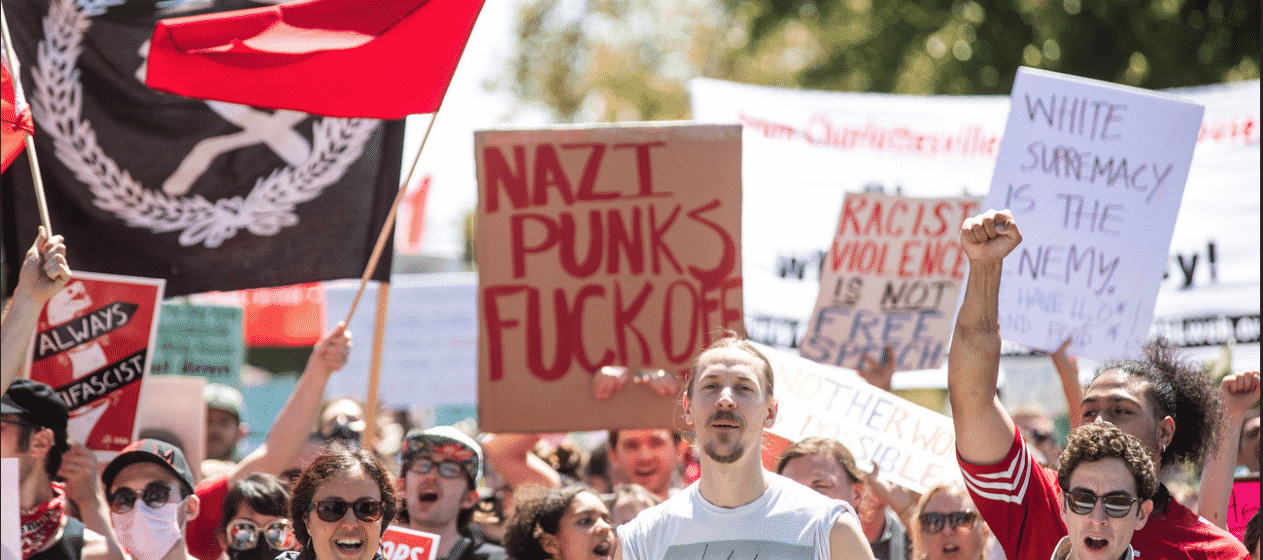In an effort to create a counter-narrative on social media, the Berkeley Police Department (BPD) published the mugshots and personal information of activists they arrested for carrying banned weapons in a rally. Emails also revealed that the city actually has a policy that targets protesters with mugshot tweets, with the goal of creating a counter-narrative on social media.
Consistent with today’s fervor over engagement on social media, the emails also revealed that the Berkeley police were ecstatic about the high number of retweets and overall engagement that the mugshot tweets received. Documents revealed that in one mugshot tweet, the police department had over:
- 11,000 likes
- 8,000 retweets
- 1.7 million impressions.
Officials had even praised the widespread attention that the mugshots received and said that it became a testament of the city’s ability to enforce its laws.
Online shaming and doxing
Activists, however, did not appreciate the northern California police department’s actions, tagging it at the very least as online shaming. After the police posted the mugshots and the arrested persons’ personal information online, Fox News covered the news. What soon followed such wide coverage were abuse and harassment against the leftwing protesters.
The protesters accused the police of doxing, the act of publishing a person’s personally identifiable information to encourage harassment.
However, city spokesperson Matthai Chakko defended the mugshot tweets policy and said that it was a response to “exceptional circumstances” and “exceptional amounts of violence at Berkeley” during past rallies. He didn’t comment when asked whether the police thought about possible doxing and abuse when they formulated the policy.
“They broke the law,” was all he said.
He also didn’t comment on the fact that the arrests didn’t lead to any convictions or even formal charges, but said that they are “comfortable with our arrests.”
The alleged acts of violence during the August 5 rally included:
- Smashing of car windows, although there were no reported injuries.
- Setting on fire one vehicle and three dumpsters.
- Bringing of weapons such as a sledgehammer, metal poles, and other banned items during rallies.
Police arrested 20 people on that day, and all of them were anti-fascists who came to protest against a far-right event that happened on that same day, according to the National Lawyers Guild of San Francisco.
Social media policy for protests
Lucy Parsons Lab, a police accountability group, acquired records that show how police officials formulated and defended their social media policy on protests.
Officials said that the “Twitter protocol for mugshots” was necessary because the protests were also “social media-driven.” The documents further revealed that the officials knew that the tweets will get wide exposure nation-wide, and it’s a strategic way to build a strong personality on Twitter.
It was also made clear in the policy that the mugshots will only be tweeted if the arrests are related to protests, which was heavily criticized as an act to suppress freedom of speech. Among the information that would be posted on Twitter, according to a protocol document, are:
- Name
- Age
- City of residence
- Booking photos
- Charges
Blake Griffith, a Democratic Socialists of America activist who was cited for misdemeanor vandalism and whose mugshot was posted on Twitter.
Prosecutors didn’t file charges against the activist, which was the same for almost all arrests.
Eddy Robinson, one of the first targets of the Twitter mugshot policy was jailed for carrying protest signs which police said were banned weapons.
His mugshots were tweeted again when he was accused of “participating in a riot.” He wasn’t convicted, but his mugshots remained on Berkeley’s Twitter page.
“I already felt like my civil rights had been infringed by that arrest,” said Robinson. “To see that it was done in pursuit of a messaging goal was just bizarre. It seems fundamentally unethical.”
